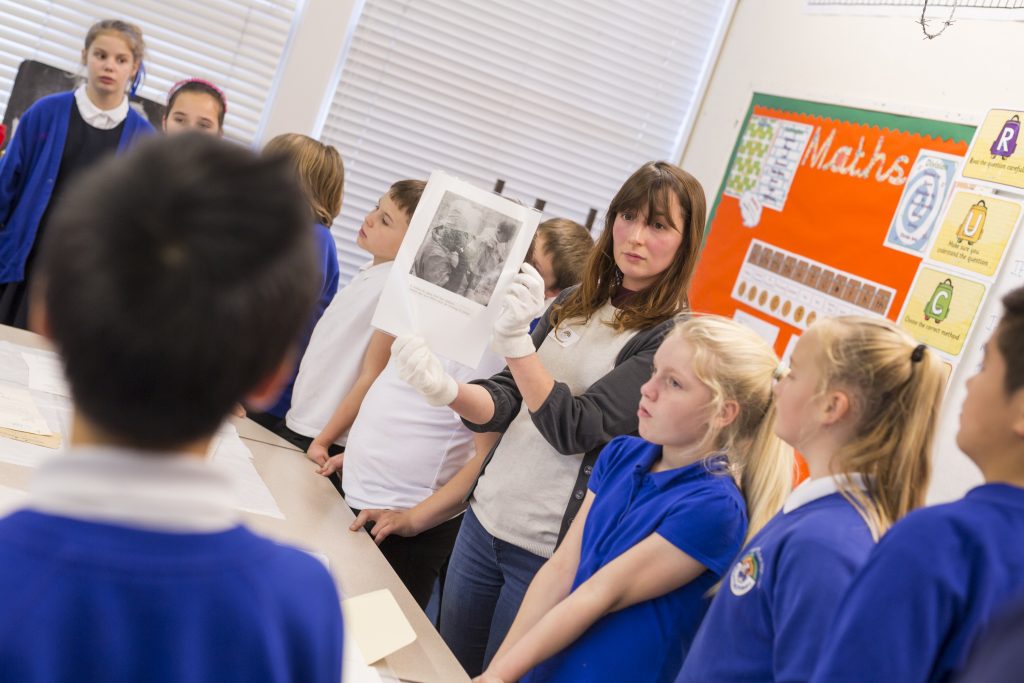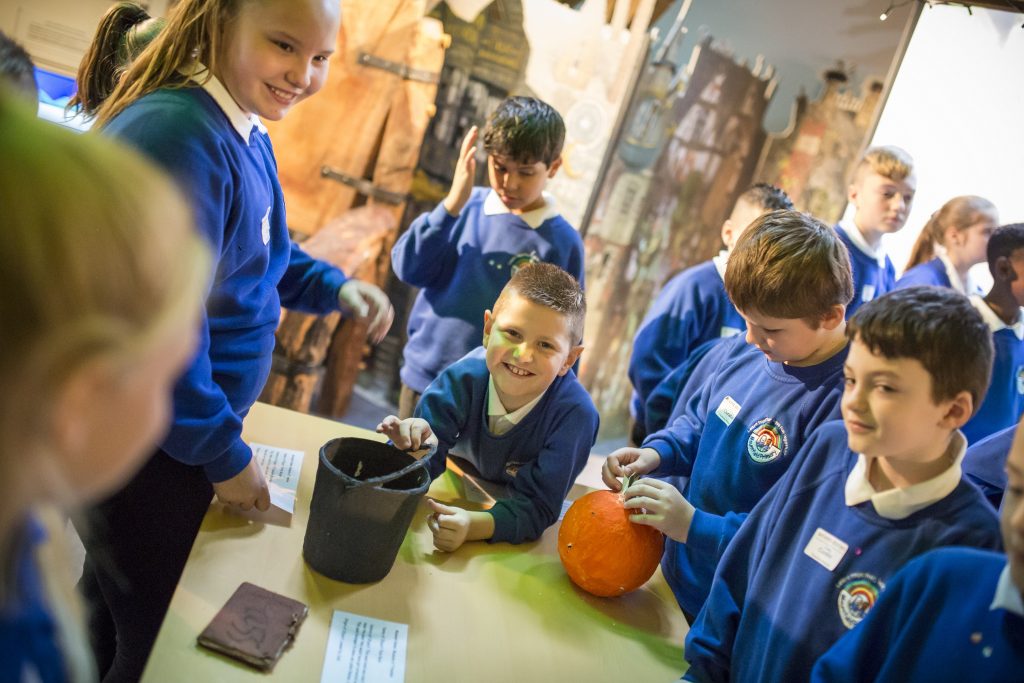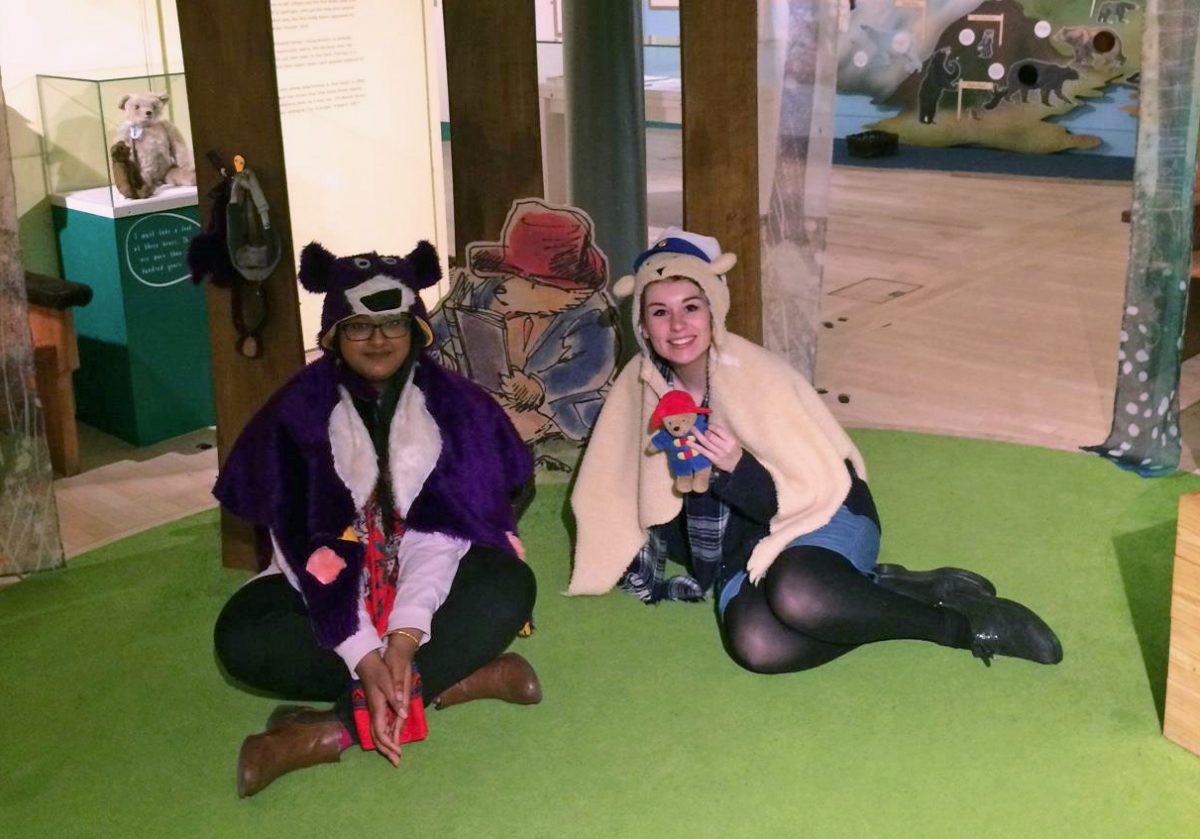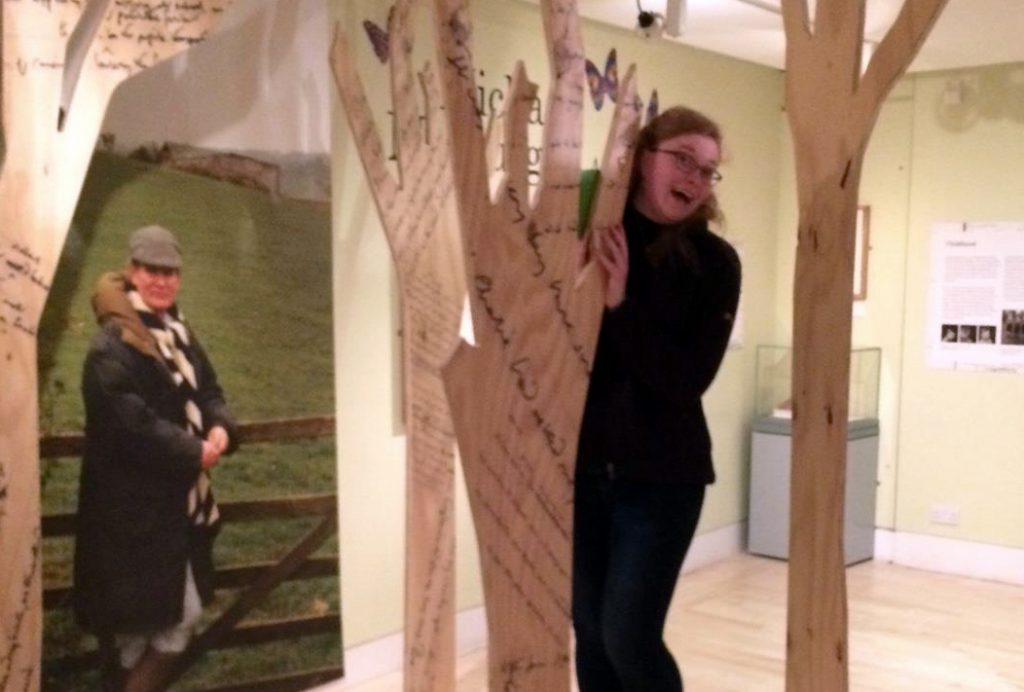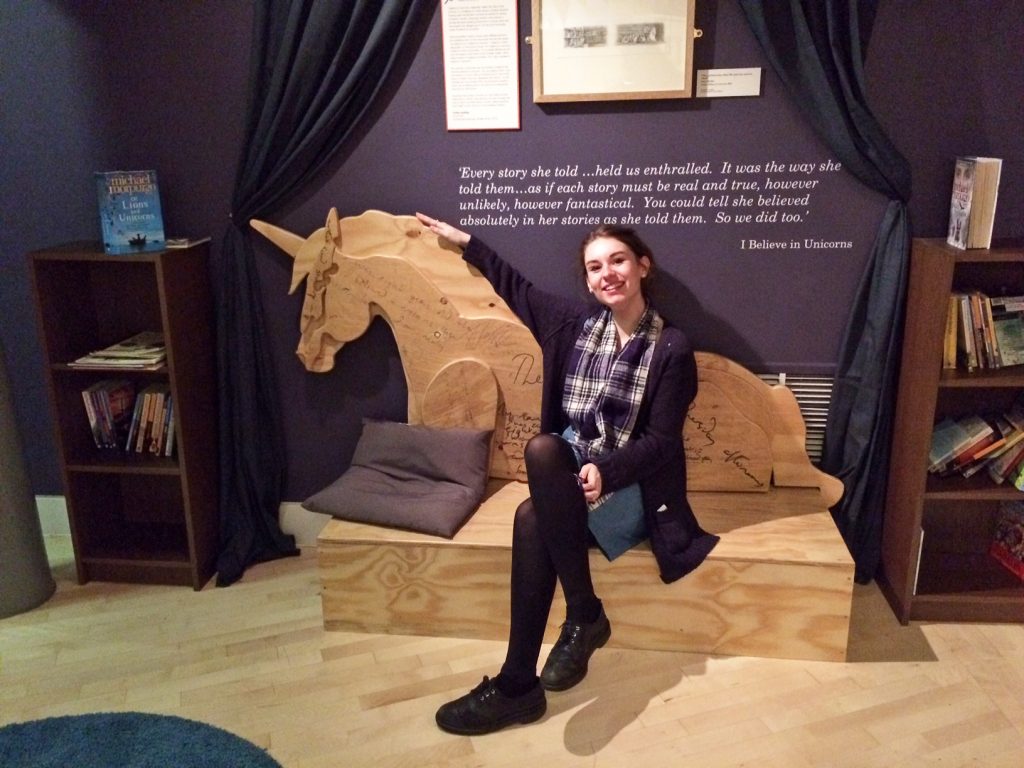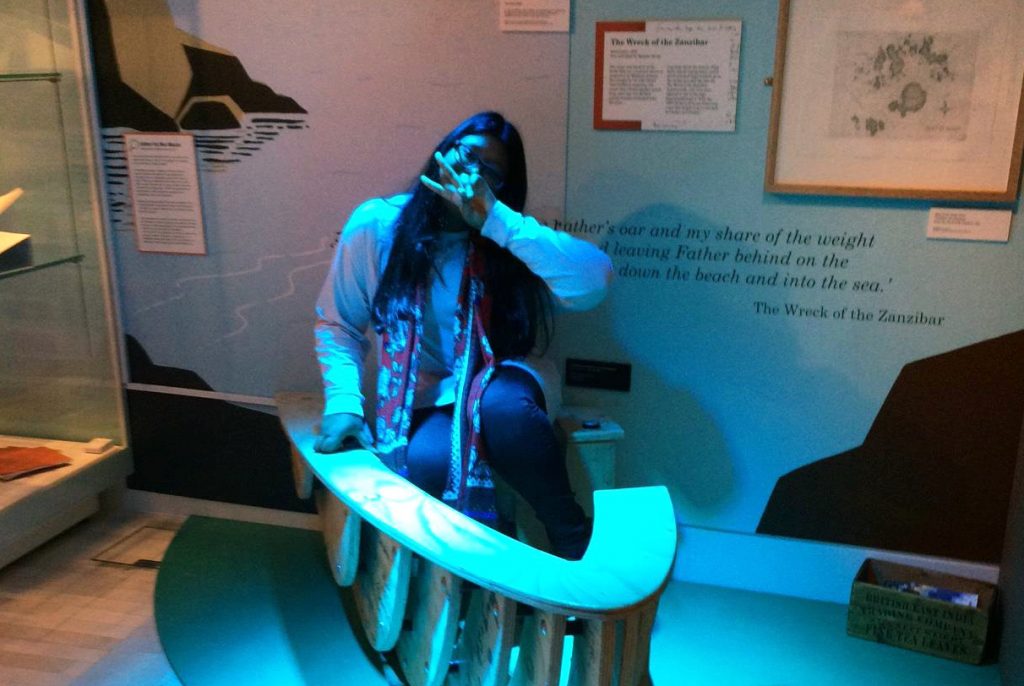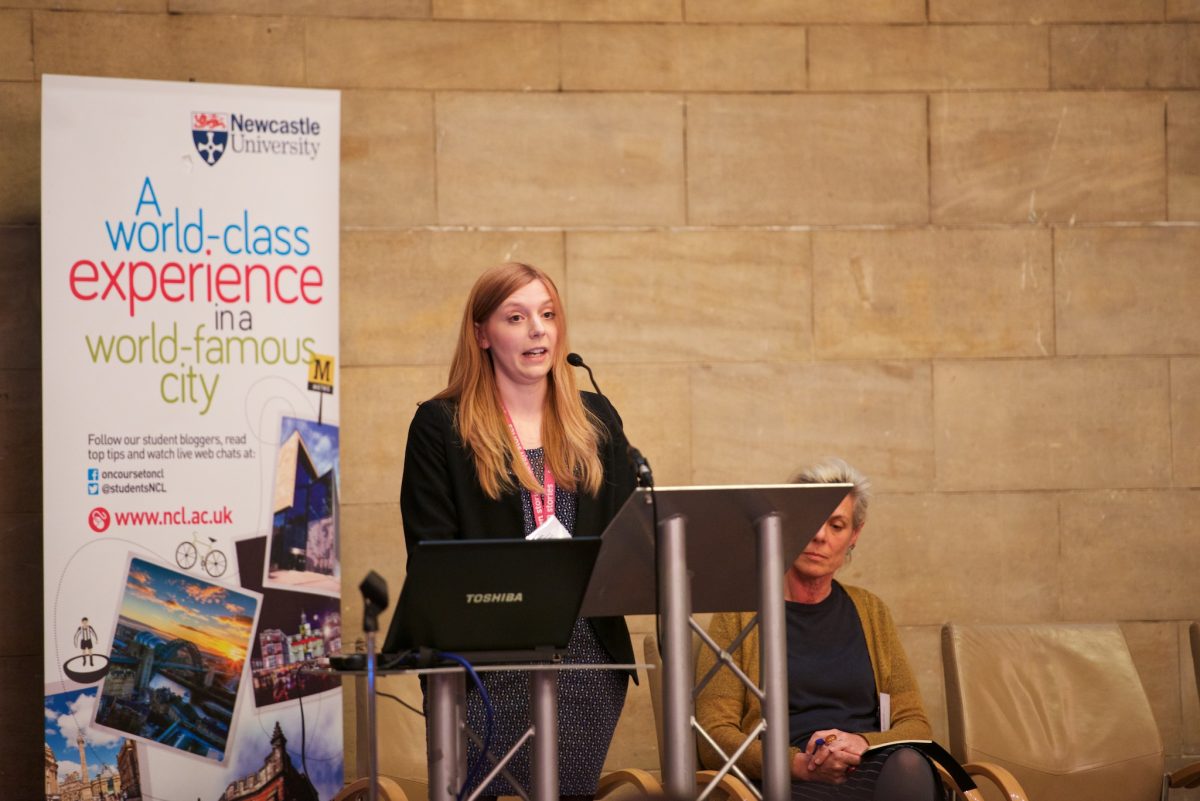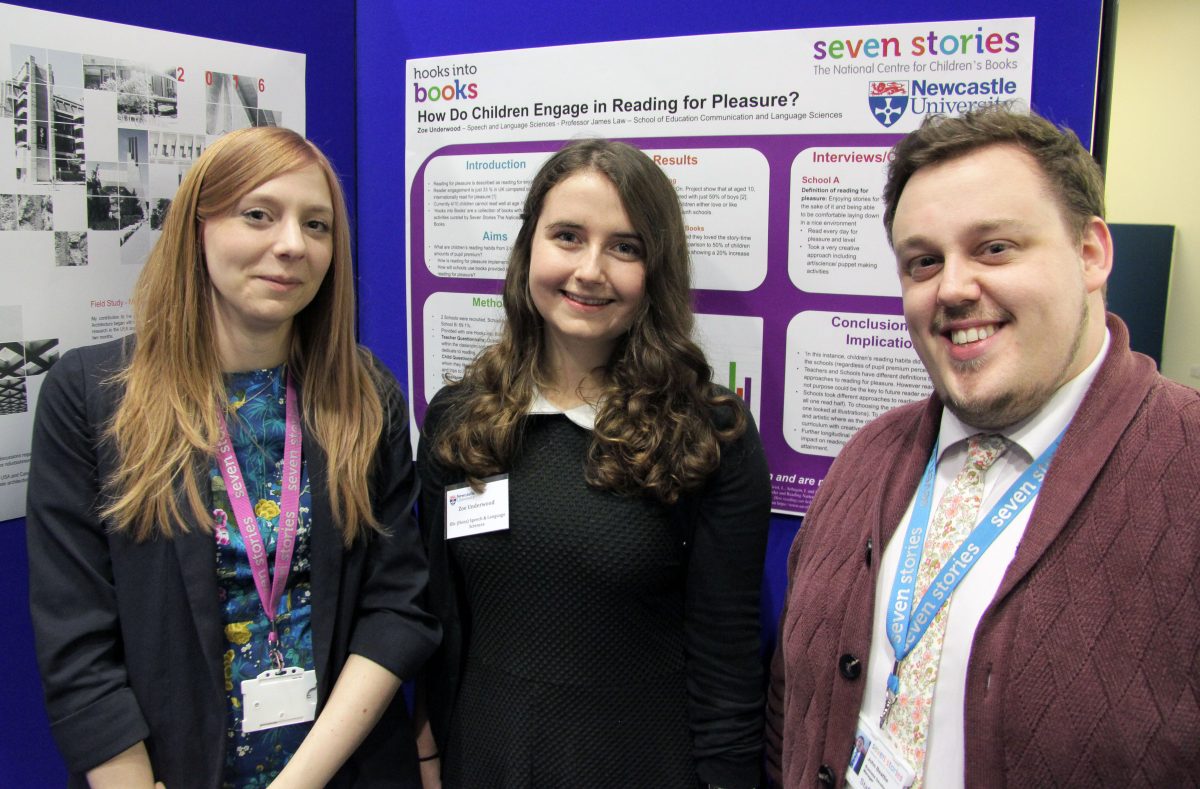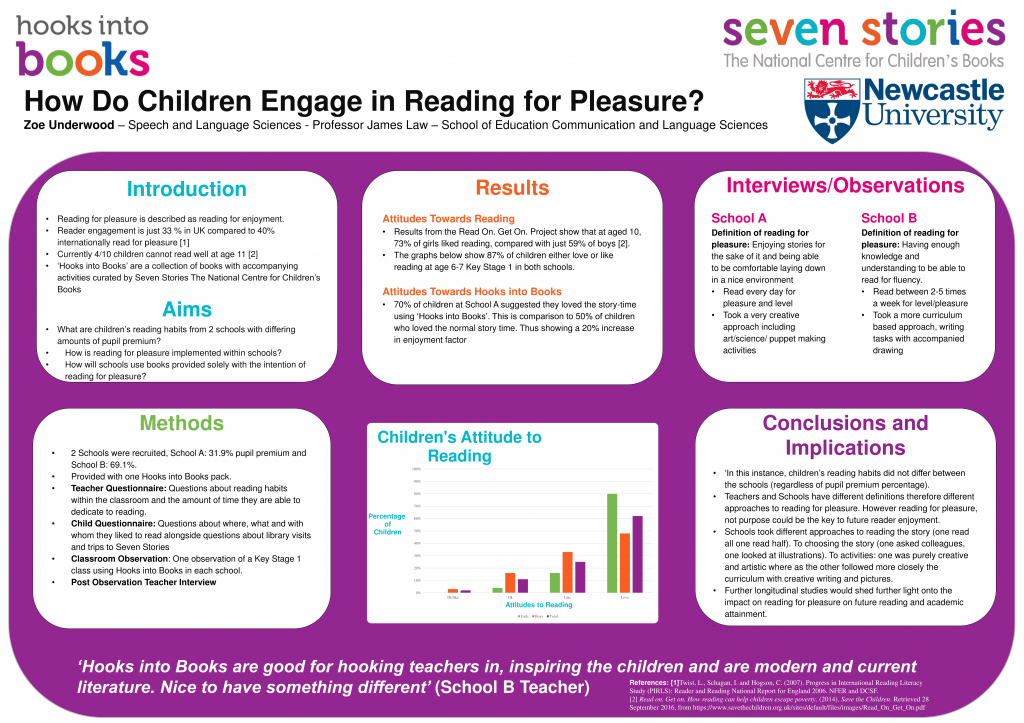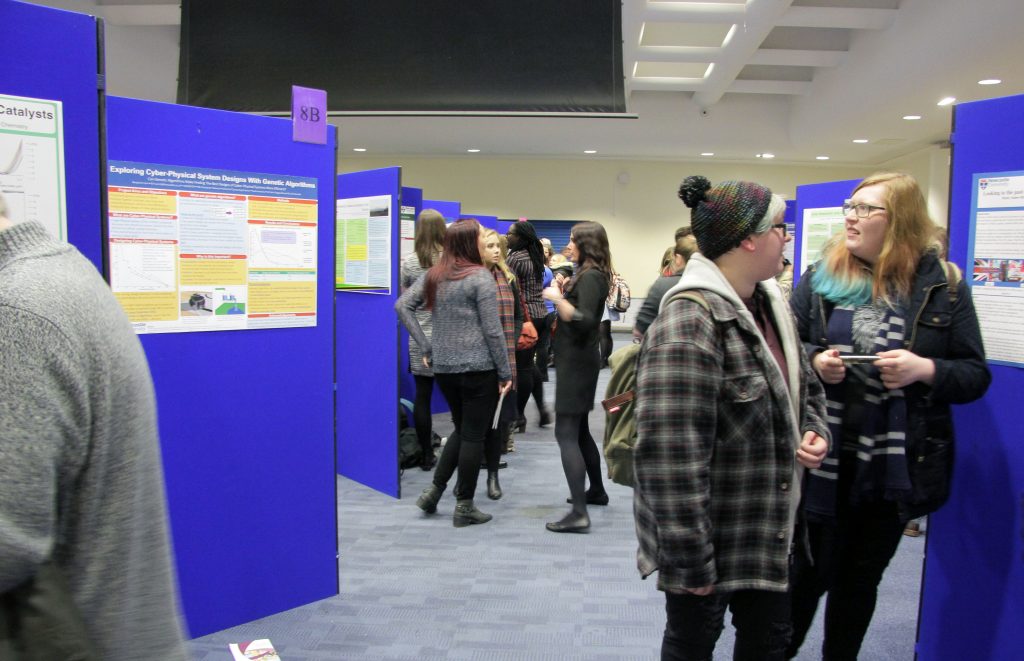Fairy tales are some of our oldest stories. As they pass down from generation to generation, they are retold and reinterpreted by different artists and audiences. This continual process of reinvention inspired a project led by Newcastle University Library’s Outreach team, who collaborated with the School of English Literature, Language and Linguistics, Fine Art at Newcastle, Seven Stories: The National Centre for Children’s Books and Tyne and Wear Archives and Museums to encourage children from three local schools to write and illustrate their own fairy tales.
Newcastle University’s Special Collections include historic and contemporary collections of children’s literature. In the Chorley Collection, Laura Valentine’s highly illustrated Aunt Louisa’s Book of Fairy Stories and Wonder Tales, formed the inspiration for the project.
The project aimed to introduce the students to Newcastle University and develop their creative writing and artistic skills by challenging them to create their own fairy tales. 60 Year 8 pupils from Excelsior Academy, St Cuthbert’s High School and Park View School explored fairy tales through two days of workshops at Newcastle University, led by Newcastle University Library’s Outreach Team.
The first day of the project focussed on creative writing. Working with staff and students from Newcastle University’s School of English Literature, Language and Linguistics, the children learnt about the history of fairy tales through a mini-lecture and took part in a creative writing workshop.
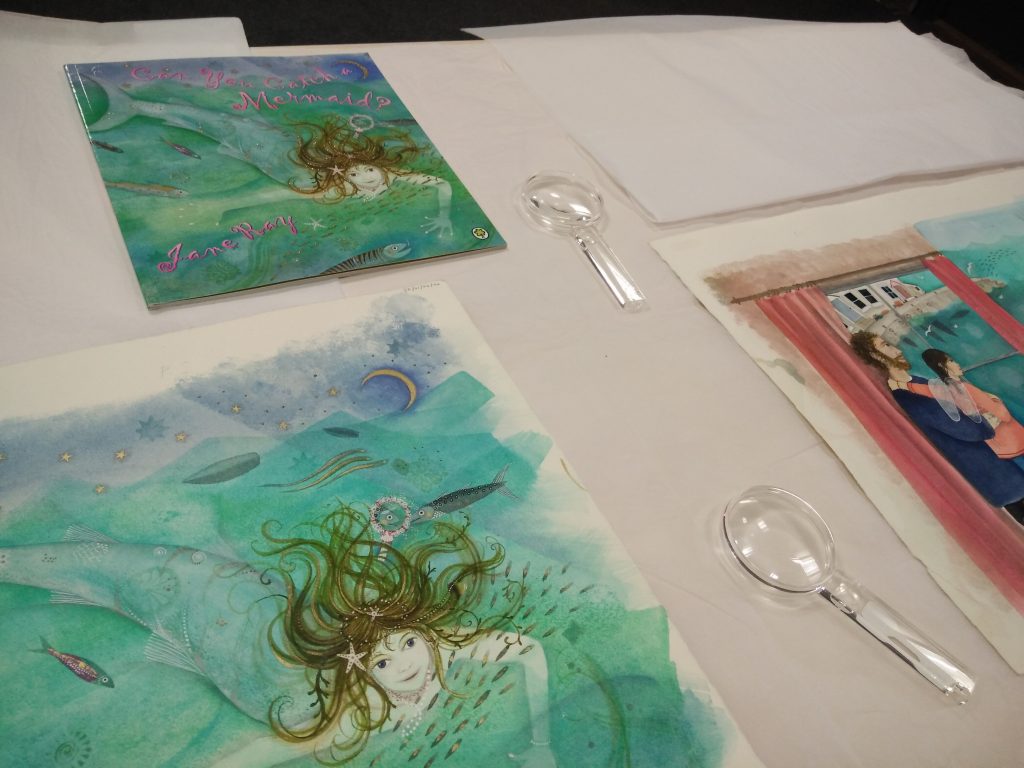
On their second visit to the University, the children focussed on illustration, taking part in a visit to Fine Art at Newcastle, and an illustration workshop facilitated by the Hatton Gallery’s Education Officer.
Day 2 also included a fairy tale Collections handling with Seven Stories. Paula was really keen for Seven Stories to be involved in this project because ‘it gave us an opportunity to work in partnership with the Special Collections team, to share our Collection in a different environment and give children hands-on access to archival material.’ She chose to show a selection of books and original illustrations from the Seven Stories Collection ‘to show the variety of different techniques and styles that illustrators use’.
I went along to help facilitate the Seven Stories sessions, where Paula introduced the material – and then we let the children explore the Collection for themselves!
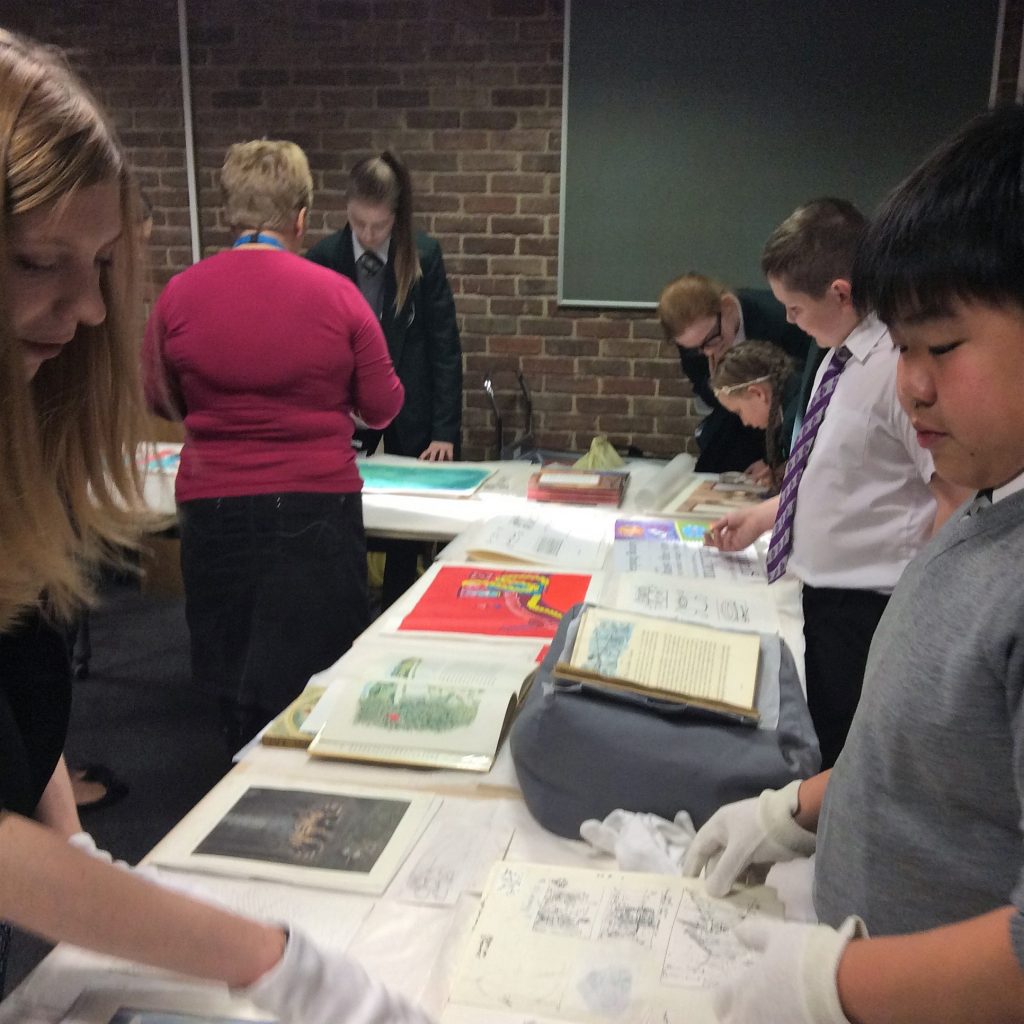
For Gillian Johnson, Education Outreach Officer at Newcastle University Library, “one of the key aims of the project was to inspire the young people taking part by giving them the opportunity to engage with exciting materials and meet different people outside of the classroom. And the fantastic original artwork shown to them did just that!”
I really enjoyed talking to the young people about the Seven Stories Collection. Paula commented that “the children were clearly interested in the material and asked lots of intelligent questions – and there were lightbulb moments for the teachers, too!” Gillian said, “The children were really engaged with the Seven Stories archive handling session. They were keen to study the illustrations up close; they put gloves on to handle the material and used magnifying glasses to look in detail at the artwork.”
What did the teachers think? “Exposure to original illustrations was a great experience for my students – they were able to see that they don’t have to create the perfect product in their first attempt!”
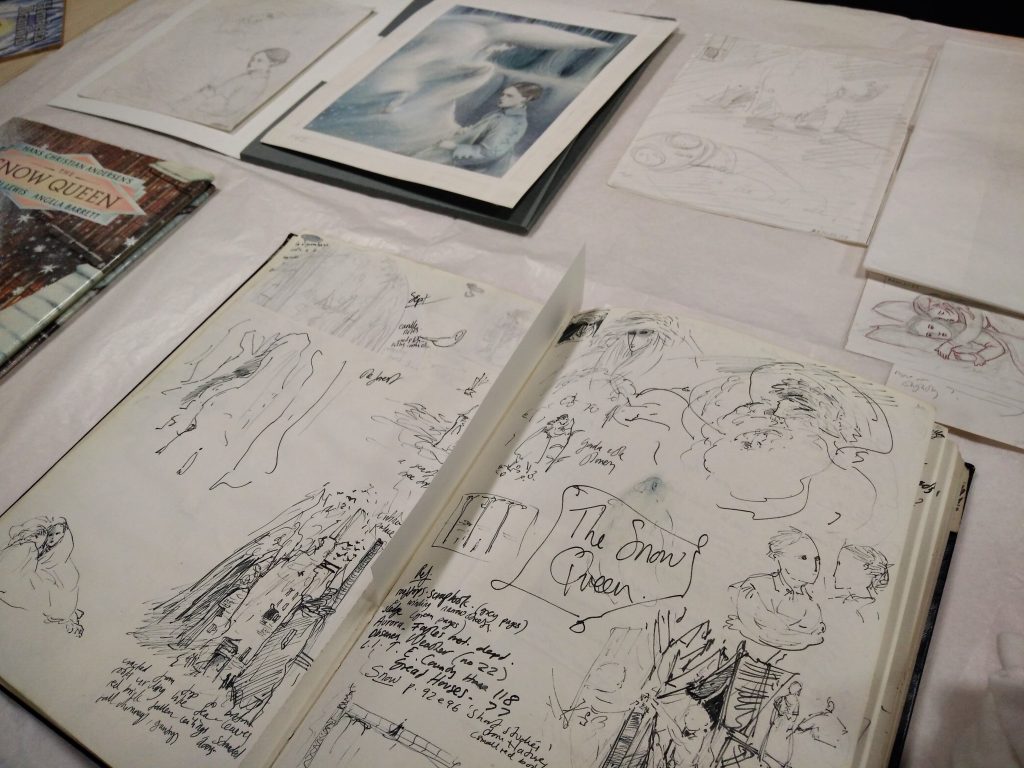
After the two days of workshops at Newcastle University, the children completed their fairy tale stories and illustrations back at their schools. Then, the Library combined these into a beautiful volume and presented a copy to each student at a celebration event held at the University.
Reflecting on the project, Gillian said, “We were really impressed with the high quality of the finished stories and illustrations produced by the children. The quality of the work shows that the students had really benefitted from the fantastic resources and expertise they had access to throughout the project.”
And the teachers were equally impressed! “My students are now lucky enough to call themselves published authors at the age of 12/13! They have been given exposure to so many different areas which have, and will continue, to inspire them.”


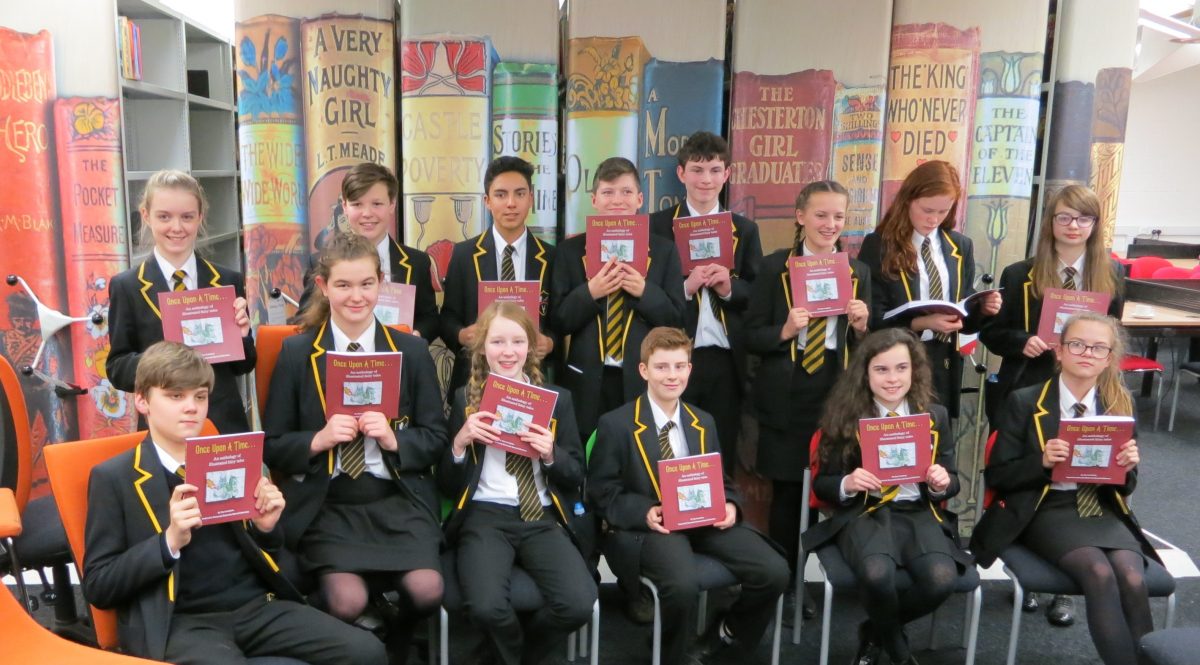
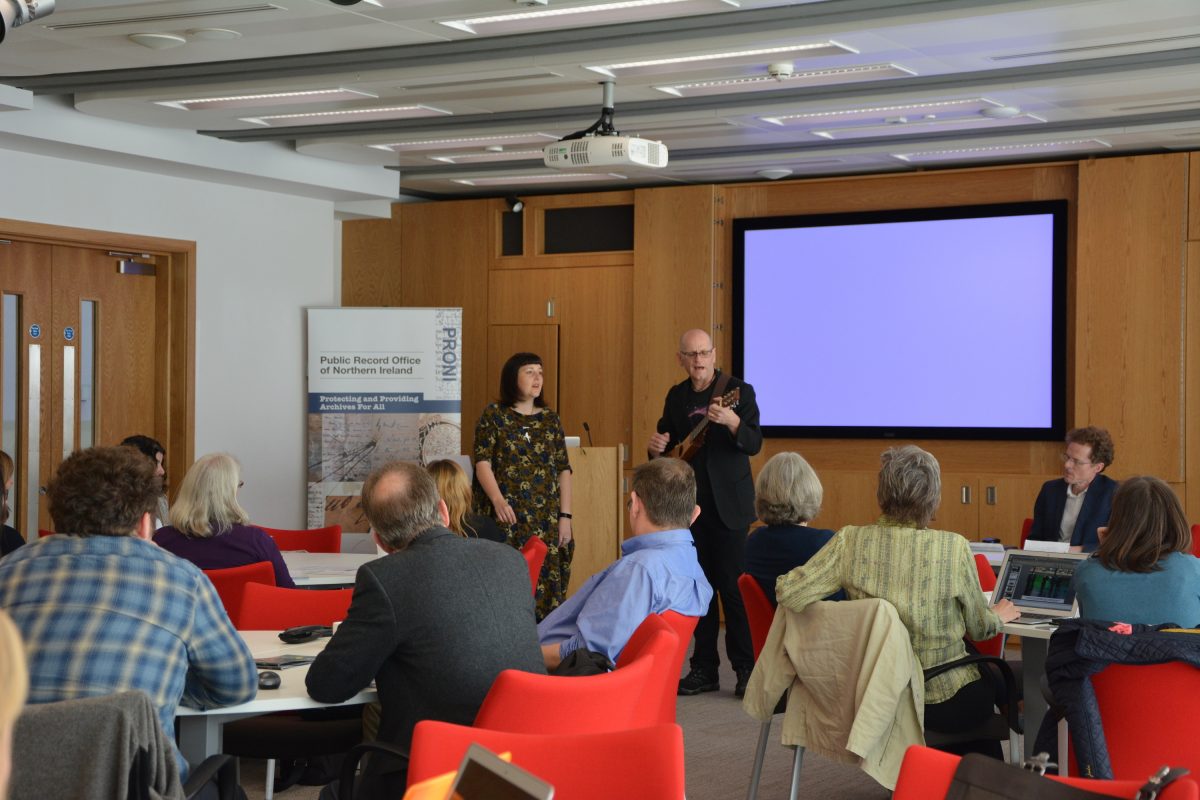
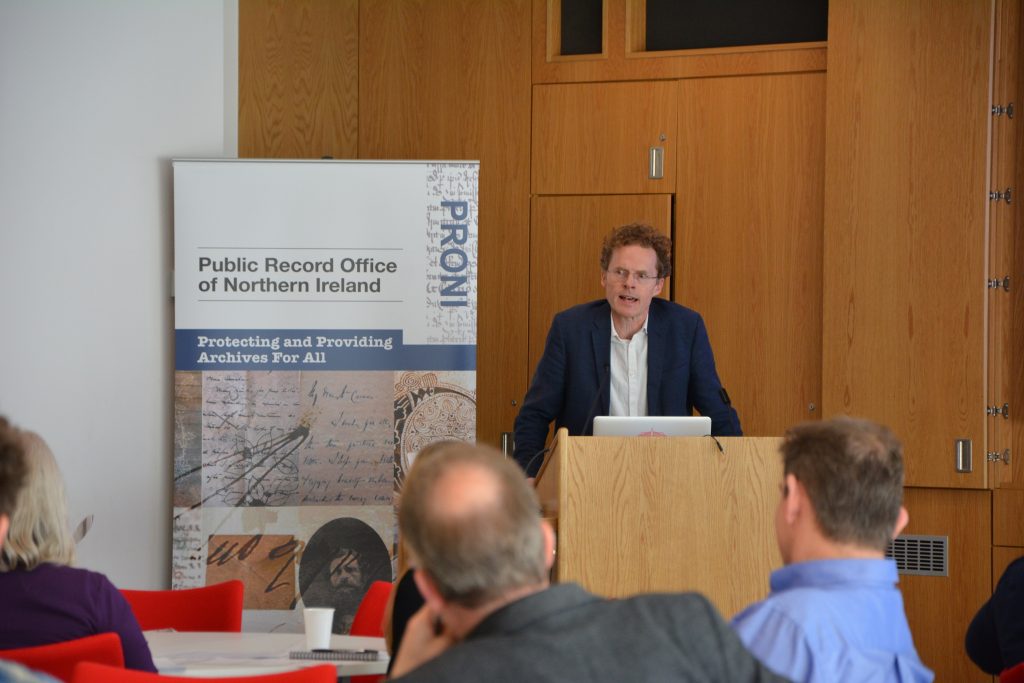
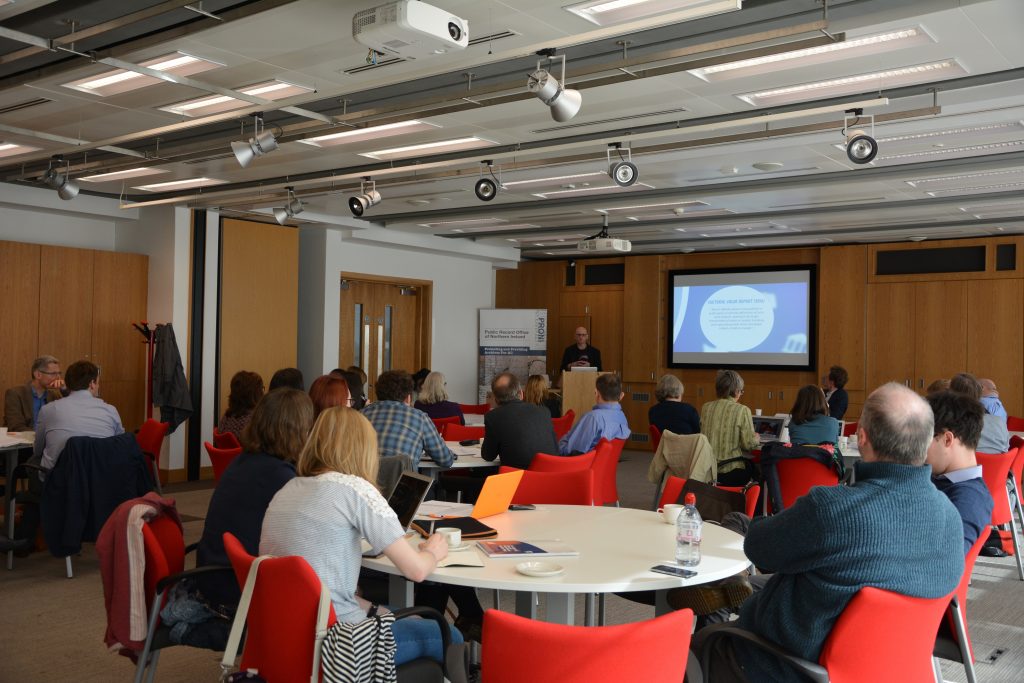
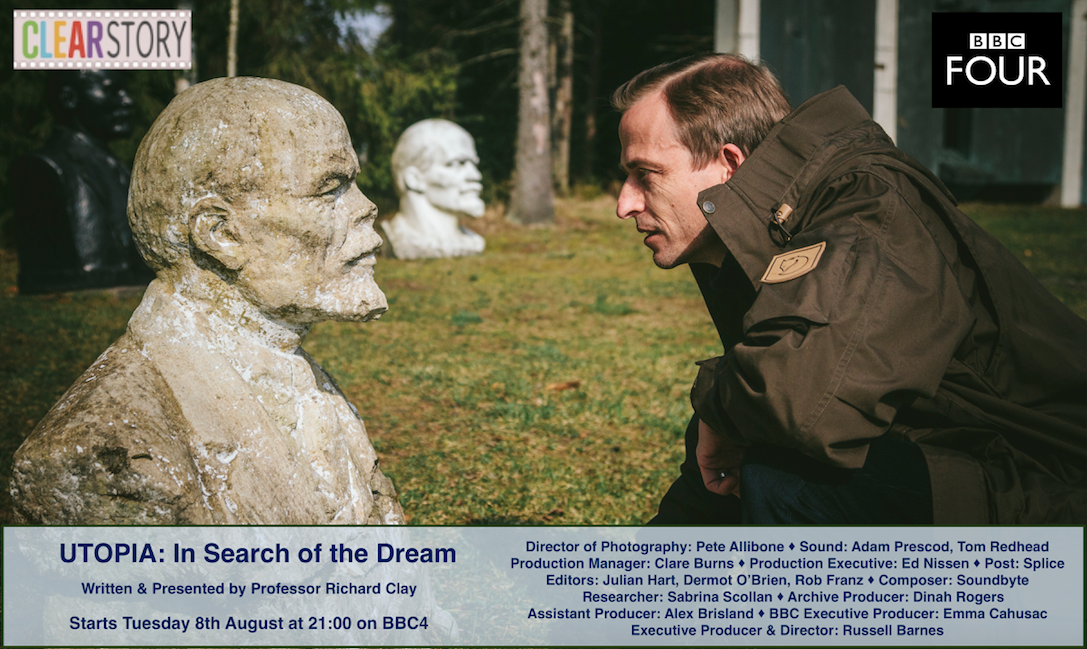
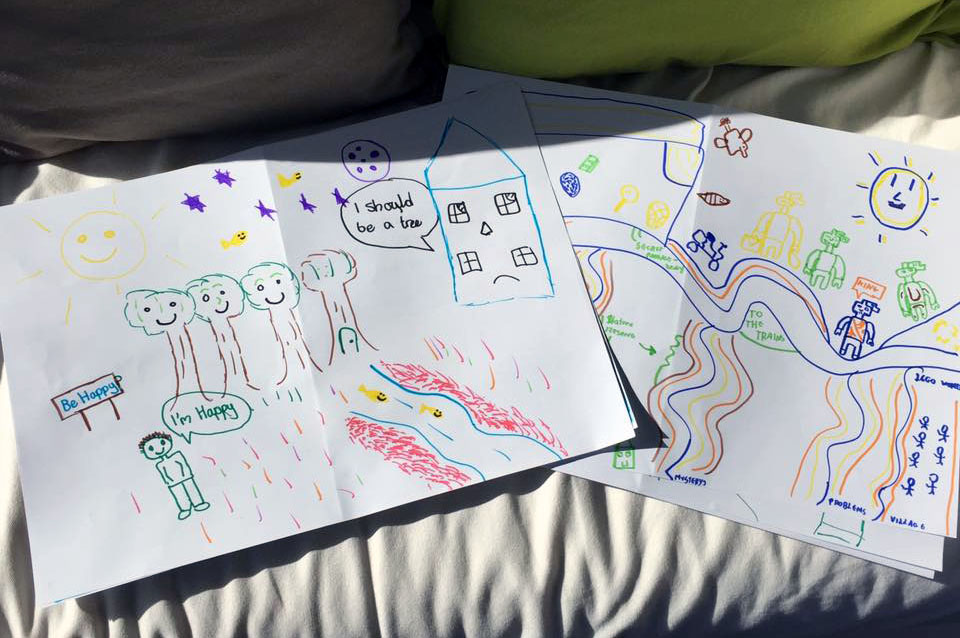
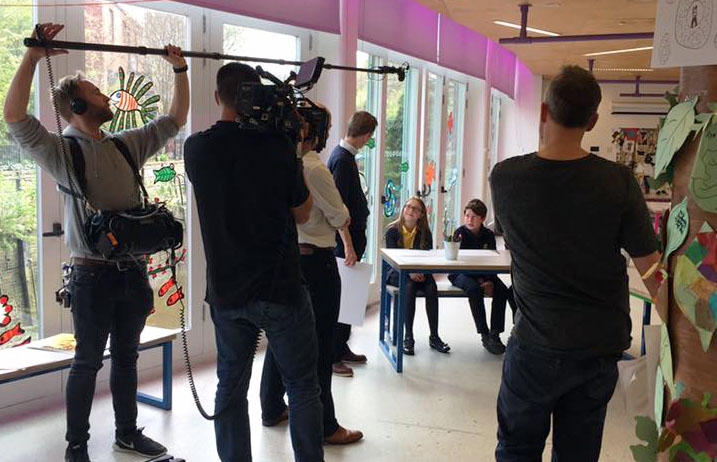
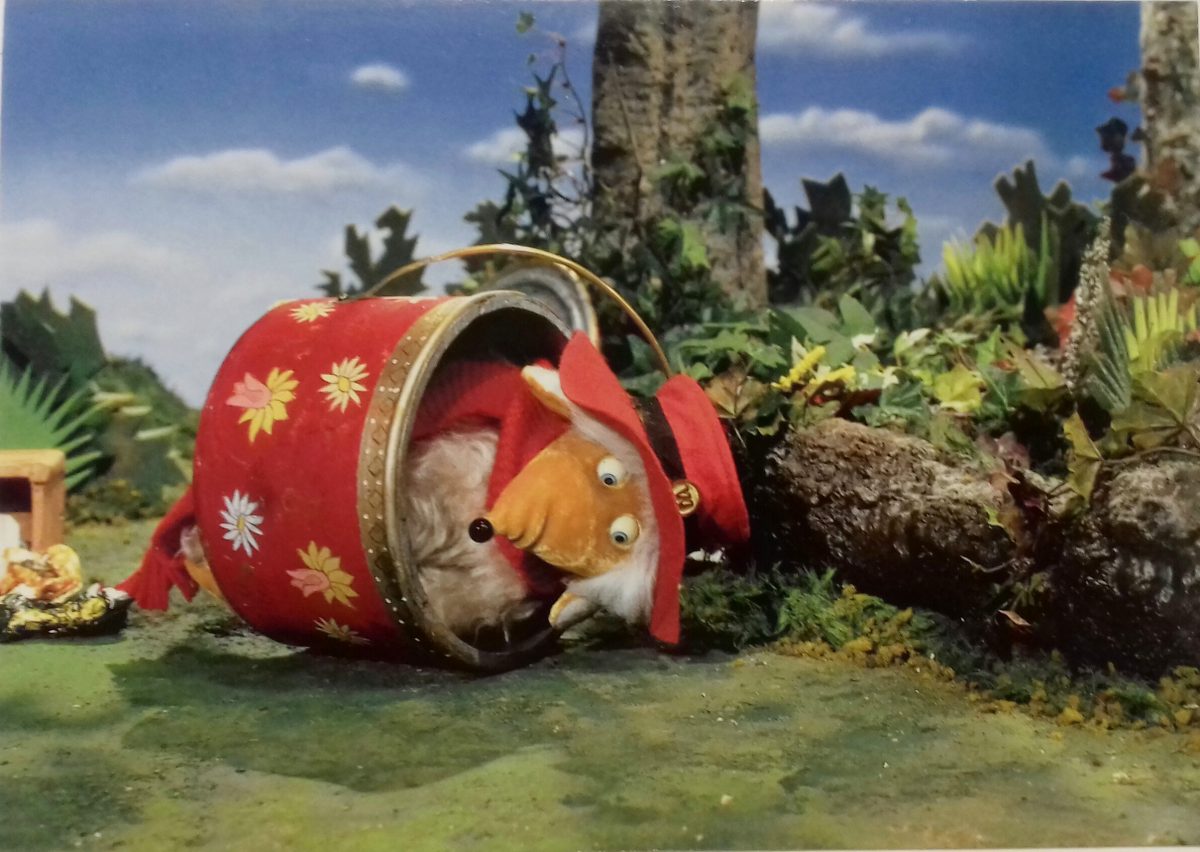
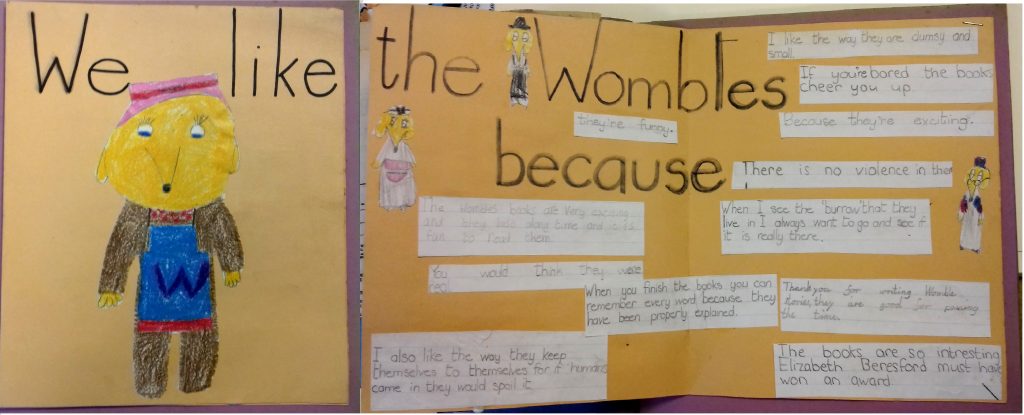
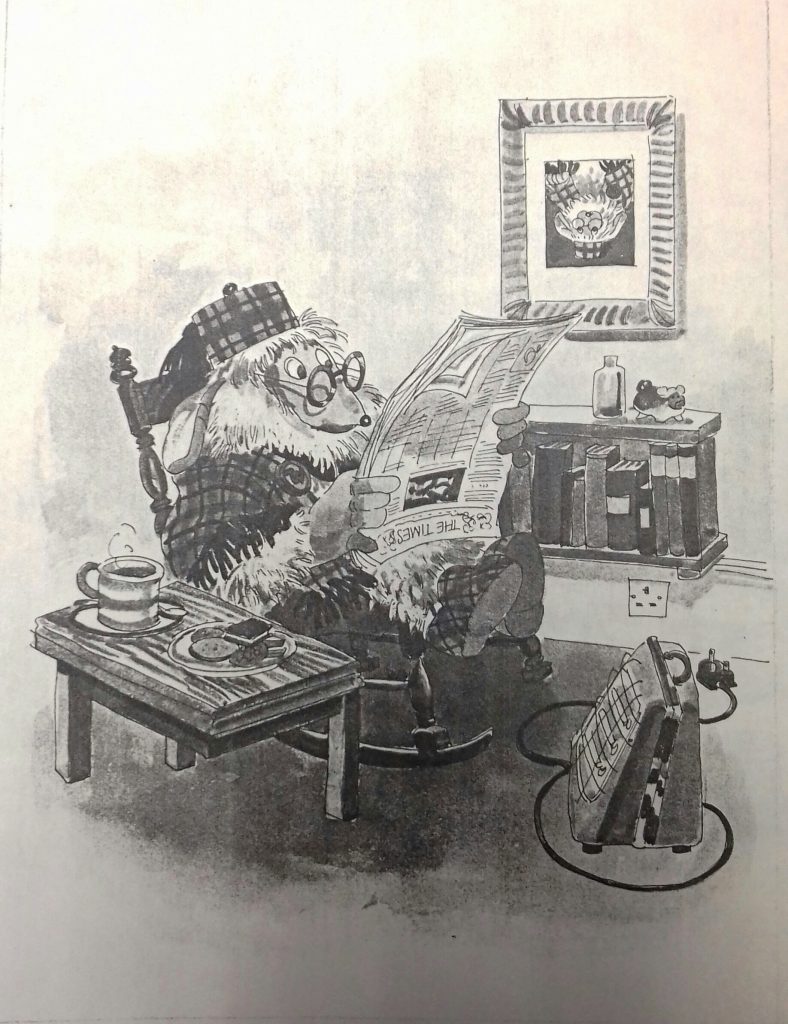
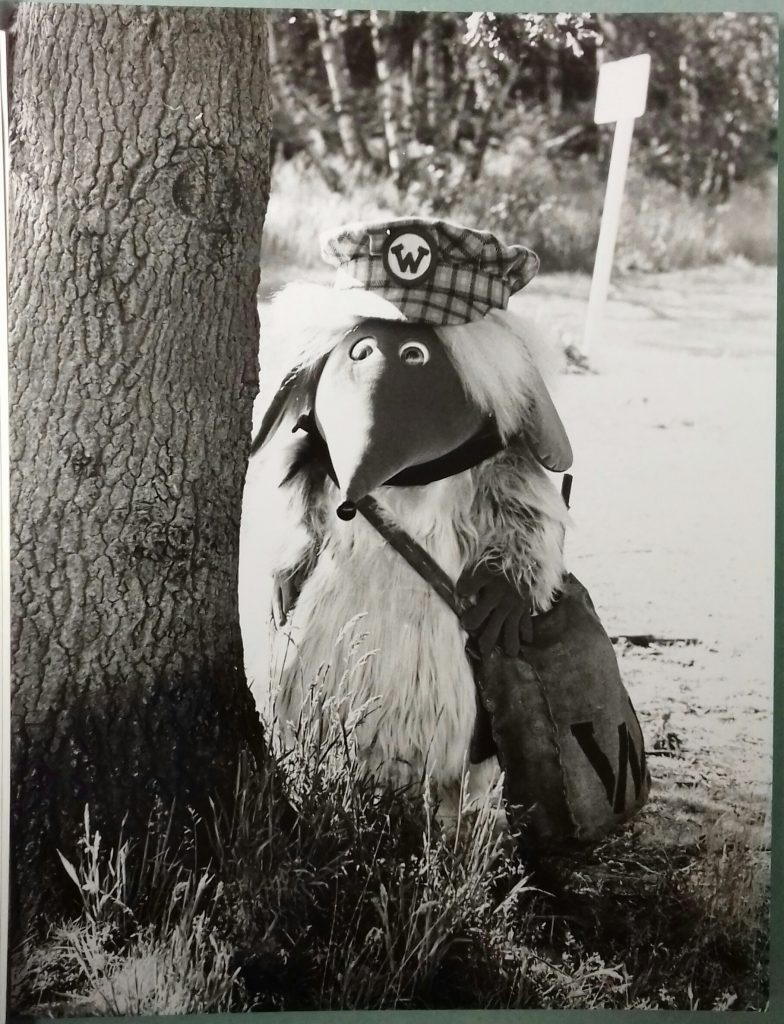
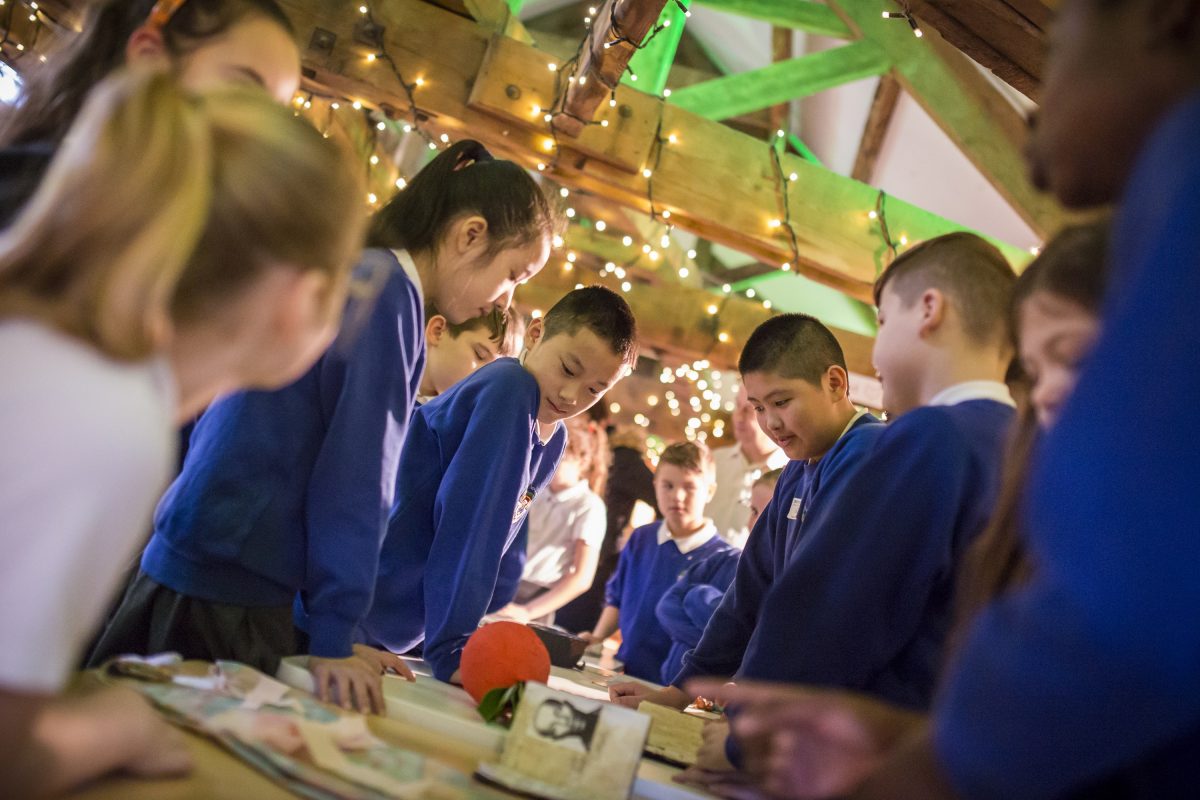
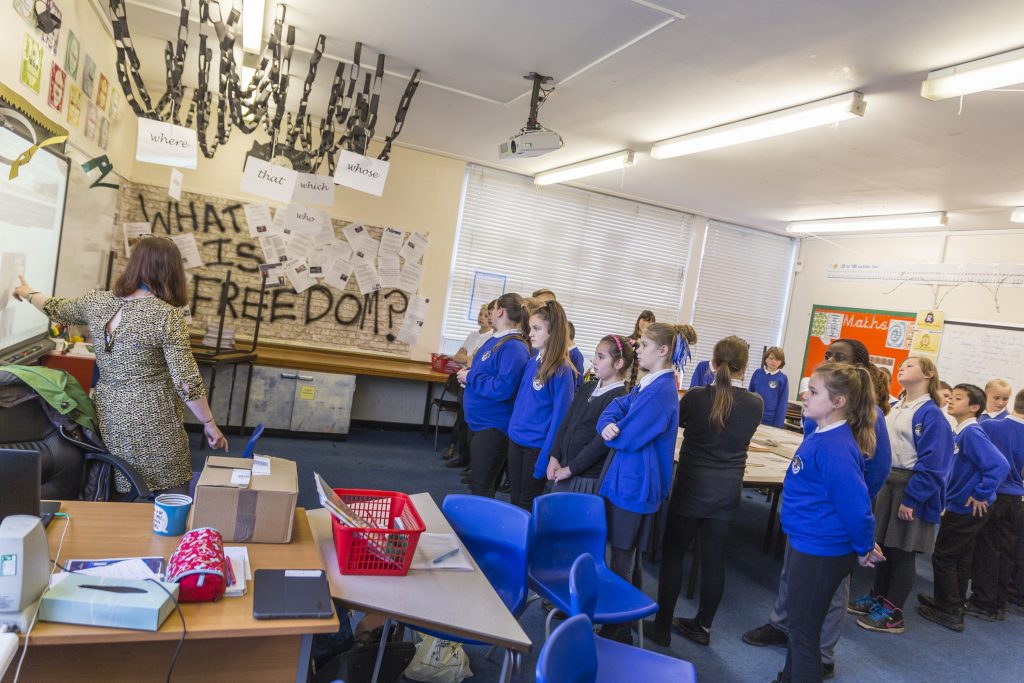
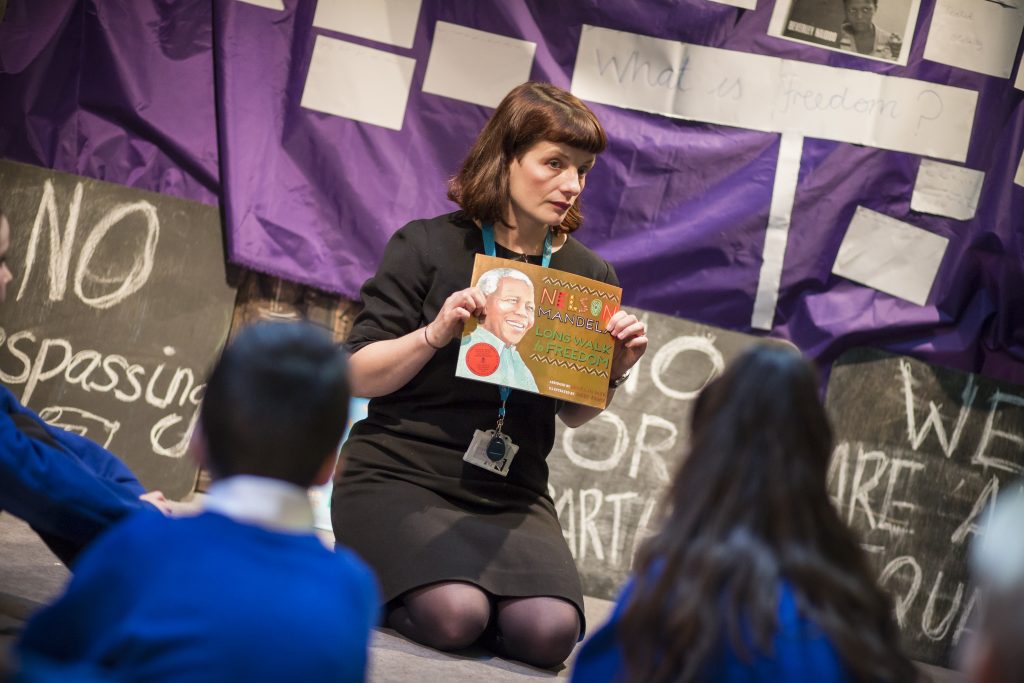 Seven Stories Learning and Participation Manager Debbie Beeks. Image: Seven Stories, The National Centre for Children’s Books, photography by Richard Kenworthy
Seven Stories Learning and Participation Manager Debbie Beeks. Image: Seven Stories, The National Centre for Children’s Books, photography by Richard Kenworthy